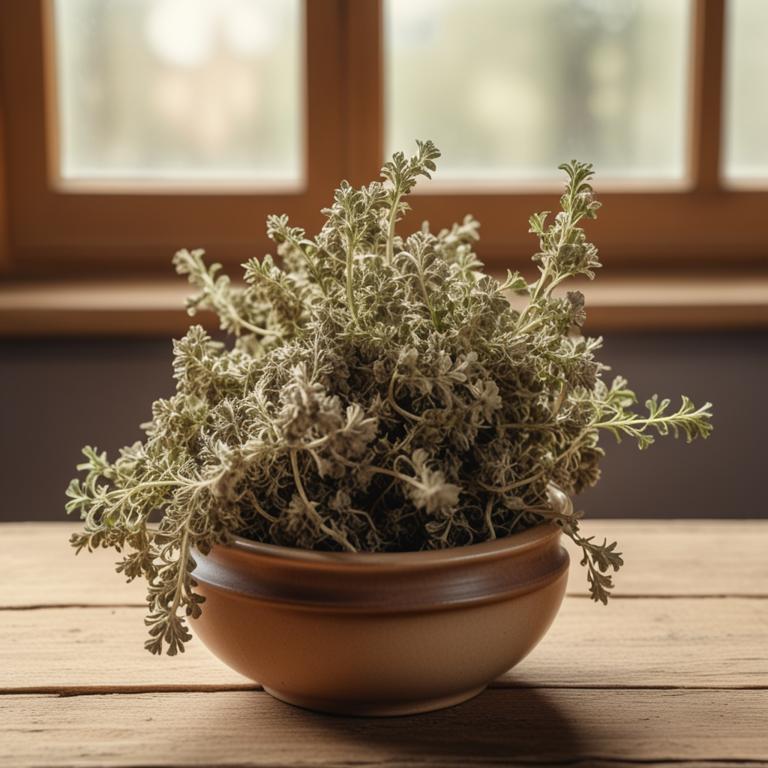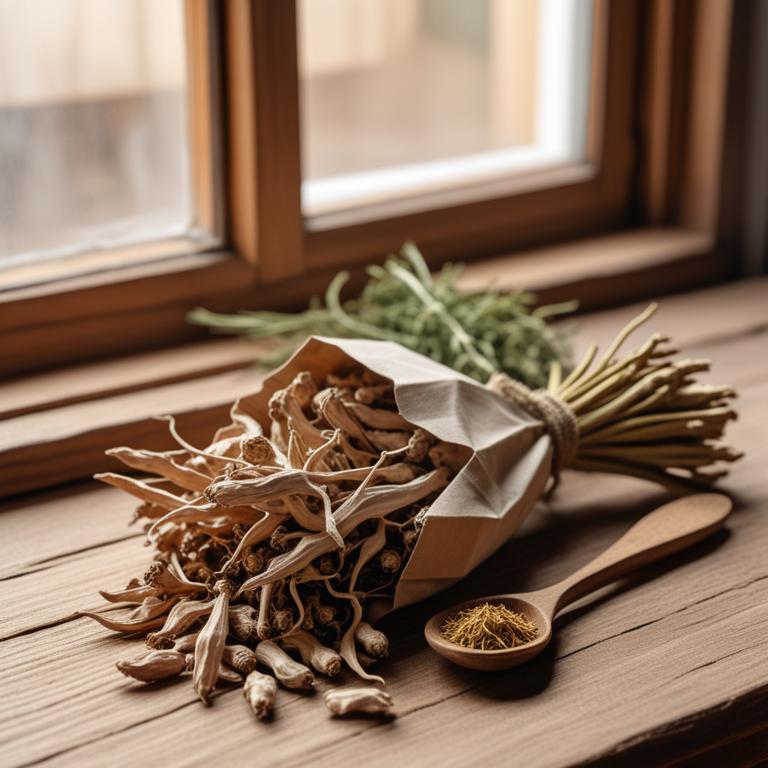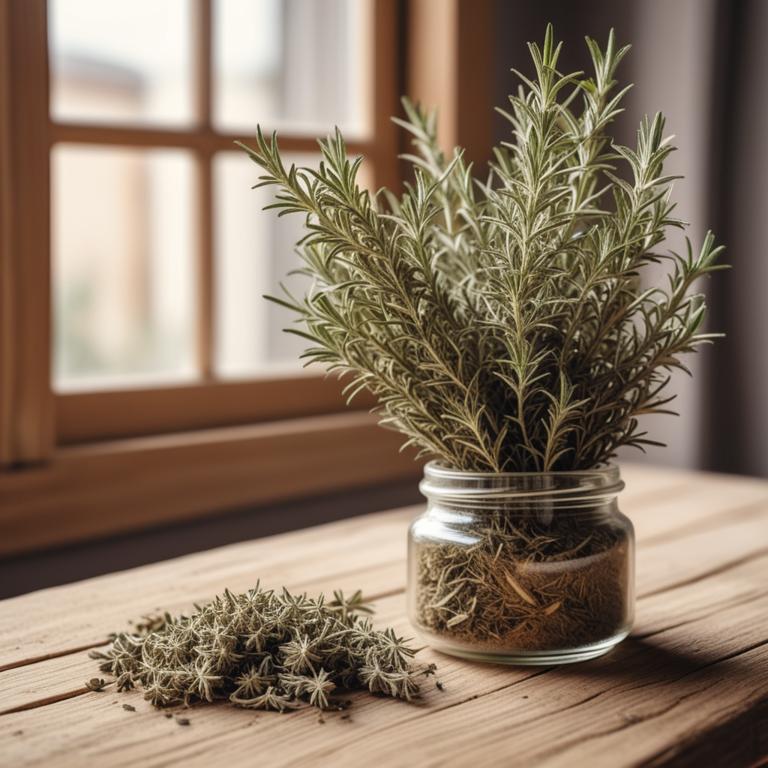Updated: Dec 1, 2024
Throat Redness Causes, Remedies with Medicinal Herbs and Herbal Preparations

Throat redness, also known as pharyngitis, is a common condition where the throat becomes inflamed and red, often causing discomfort and difficulty swallowing.
It can be a real nuisance, making everyday activities like eating and talking a challenge. Throat redness can be caused by viral or bacterial infections, allergies, or even dry air, especially during the winter months. When the throat becomes inflamed, it can lead to a scratchy, sore feeling that's hard to ignore. But there are some herbal remedies that can help soothe and calm the throat.
Herbs like slippery elm, licorice root, and marshmallow root are known for their anti-inflammatory properties and can help reduce swelling and discomfort. These herbs can be prepared as teas, which can be sipped throughout the day to provide relief. You can also make a soothing throat tea by combining herbs like peppermint, chamomile, and ginger. Simply steep the herbs in hot water, then strain and sip. Some people also use herbal lozenges or gargles to help reduce throat inflammation.
These remedies can be a natural and effective way to find relief from throat redness, and they're often more gentle on the body than over-the-counter medications.
Table of Contents
- What are the reasons behind throat redness?
- What are the advantages of using herbs for treating throat redness?
- What are the most effective medicinal herbs for throat redness?
- What are the herbal remedies commonly employed to combat throat redness?
- What herbs are contraindicated if you have throat redness?
- FAQ
What are the reasons behind throat redness?
The main causes of throat redness are several infections and conditions that can cause inflammation and discomfort in the throat.
One of the most common causes is Viral Pharyngitis, which is an infection caused by a virus, such as the common cold or flu. When a virus enters the body, it attacks the cells in the throat, causing redness, swelling, and pain. Another cause of throat redness is Bacterial Pharyngitis, which is an infection caused by bacteria, such as group A Streptococcus. This type of infection is often contagious and can be spread through close contact with an infected person. Bacterial pharyngitis can be more serious than viral pharyngitis, and may require antibiotics to treat. Tonsillitis is also a common cause of throat redness, particularly in children.
It is an infection of the tonsils, which are the two small glands located on either side of the back of the throat. When the tonsils become infected, they can become swollen and painful, causing redness and discomfort in the throat. Mononucleosis, also known as "mono" or the "kissing disease," is another cause of throat redness. It is a viral infection that is spread through saliva, often through kissing or sharing utensils. Mononucleosis can cause fatigue, fever, and sore throat, and can be more serious in people with weakened immune systems. A tonsillar abscess is a rare but serious cause of throat redness. It is a pocket of pus that forms on the tonsils, often as a result of a bacterial infection.
A tonsillar abscess can be painful and may require antibiotics or even surgery to treat.
What are the advantages of using herbs for treating throat redness?
Using herbs for throat redness can be really helpful.
They can soothe and calm the irritated area, reducing discomfort and pain. Some herbs have anti-inflammatory properties, which can help reduce swelling and redness.
They can also help fight off the underlying infection that's causing the redness, which is especially good for infections like strep throat. Additionally, these herbs can help reduce inflammation in the throat, making it easier to swallow and speak. They can also help ease coughs and sore throats, making them a great natural remedy for common colds and flu.
Furthermore, using herbs for throat redness can be a great alternative to harsh chemicals and medicines, which can have unpleasant side effects.
What are the most effective medicinal herbs for throat redness?

Herbs can be very helpful in soothing a sore or red throat.
Echinacea purpurea, also known as coneflower, is known for its ability to boost the immune system, which can help fight off the underlying cause of a sore throat. Its anti-inflammatory properties can also reduce swelling and discomfort. Ginger, or Zingiber officinale, has natural anti-inflammatory properties that can help ease pain and inflammation in the throat. It's also a natural expectorant, which means it can help loosen and clear out mucus and other debris that may be irritating the throat. Licorice root, or Glycyrrhiza glabra, is a natural anti-inflammatory that can help soothe a sore throat and reduce inflammation.
It's also been shown to have antibacterial properties, which can help fight off infections that may be causing the sore throat. Thyme, or Thymus vulgaris, is another herb that's been used for centuries to help soothe a sore throat. It contains compounds that have antibacterial and antiviral properties, which can help fight off infections and reduce inflammation. Peppermint, or Mentha x piperita, can also be very helpful in soothing a sore throat. Its cooling properties can help reduce inflammation and discomfort, while its antibacterial properties can help fight off infections. All of these herbs can be used in teas, infusions, or other forms to help soothe a sore or red throat.
They can be especially helpful when used in combination with other remedies, such as warm liquids or a humidifier, to help ease discomfort and promote healing.
What are the herbal remedies commonly employed to combat throat redness?
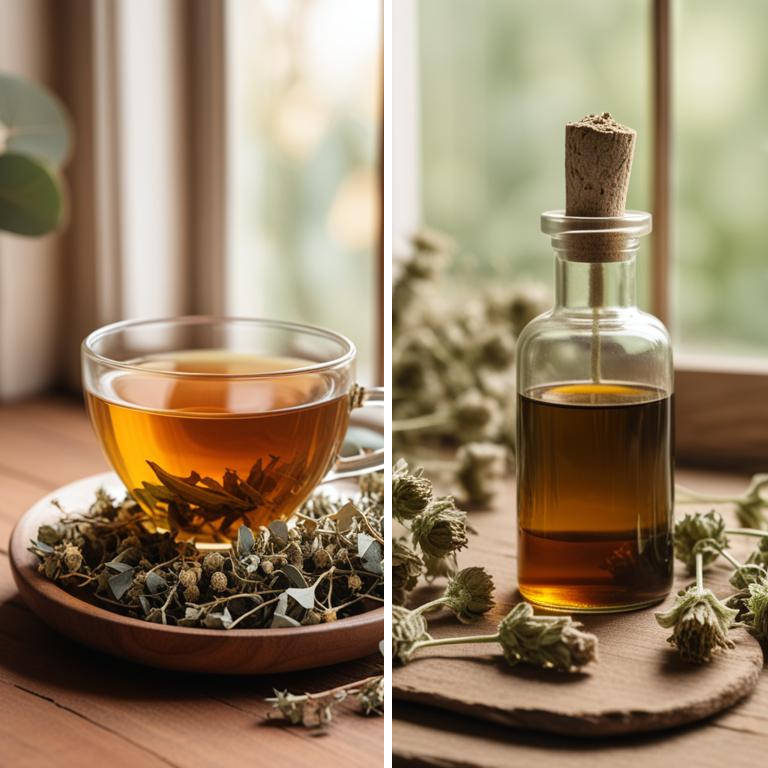
Herbal preparations are great for soothing throat redness because they're packed with natural remedies that can calm and protect your throat.
Tea, made by steeping herbs like peppermint, chamomile, or licorice root, is a classic way to ease throat irritation. Drinking tea can help calm your throat and reduce inflammation. A decoction, which is similar to tea but involves longer simmering times, can be even more effective for breaking down tough plant fibers and releasing their active compounds.
Lozenges, which come in many flavors, can provide quick relief when you suck on them, and often contain ingredients like eucalyptus or slippery elm to coat and soothe your throat. Infusions, like herbal tea but often made with delicate herbs like calendula or hibiscus, can be gentler on the throat while still providing anti-inflammatory benefits. Tinctures, which are highly concentrated liquid extracts of herbs, can be taken directly or added to water to create a throat-soothing drink.
These tinctures often contain powerful herbs like sage or thyme, which can help reduce redness and inflammation.
Additional Resources:
What herbs are contraindicated if you have throat redness?
If you have throat redness, it's best to be cautious with certain herbs.
Rosmarinus officinalis, commonly known as rosemary, can be irritating to the throat due to its essential oils, which may cause discomfort and inflammation. Similarly, Lavandula angustifolia, or lavender, has oils that can also be too harsh for a sore throat.
Silybum marianum, or milk thistle, is often used to support liver health, but its seeds can cause stomach issues that may exacerbate throat redness. Piper nigrum, or black pepper, contains compounds that can cause irritation and discomfort, especially when ingested in large quantities. Foeniculum vulgare, or fennel, has oils that can be too intense for a sore throat, potentially making it more inflamed.
When using herbs, especially those that can be irritating, it's essential to be aware of their potential effects and use them with caution to avoid making your throat redness worse.
FAQ
Are there any specific herbs that can prevent throat redness?
Slippery elm is a helpful herb for soothing a sore throat.
Its mucilage properties create a protective barrier that reduces inflammation and irritation. Licorice root is also commonly used to calm redness and discomfort in the throat.
These herbs can be consumed as teas or added to foods for relief.
Is it safe to use herbal remedies for throat redness during pregnancy?
When you're pregnant and your throat gets red, it's natural to look for relief.
However, some herbal remedies might not be safe for you and your baby. For example, certain herbs like pennyroyal and blue cohosh can cause problems. It's best to choose gentle remedies like slippery elm or licorice root, which are often considered safe during pregnancy.
Always read labels and follow instructions carefully.
Are there any herbs that can reduce the frequency of throat redness?
Ginger has been known to help soothe a sore throat.
Its anti-inflammatory properties can reduce redness and swelling. Drinking ginger tea or adding fresh ginger to your meals may help calm irritation and alleviate discomfort.
Some people also find relief from sage tea, which has antibacterial properties that can help combat throat infections.
Can i combine different herbal remedies for throat redness?
You can combine herbal remedies for throat redness, but be cautious.
For example, you could try mixing slippery elm with marshmallow root to soothe and protect your throat. Add some licorice root to help calm inflammation.
Just remember to use small amounts and adjust as needed, as different herbs can interact with each other.
Related Articles
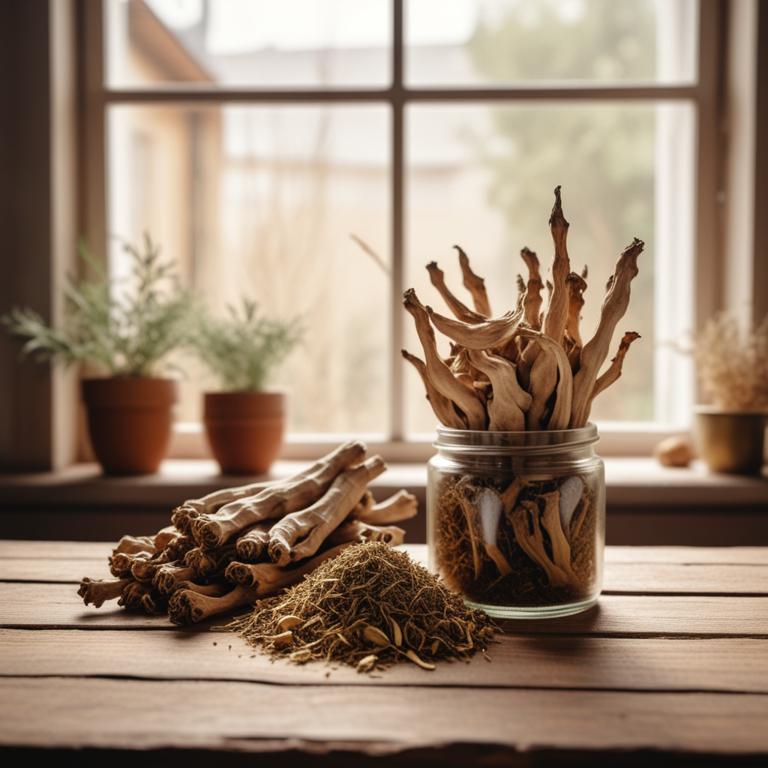
Understanding Chronic Bronchitis: Causes, Medicinal Herbs, and Herbal Remedies

Snoring: Causes, Herbal Remedies, and a Good Night's Sleep
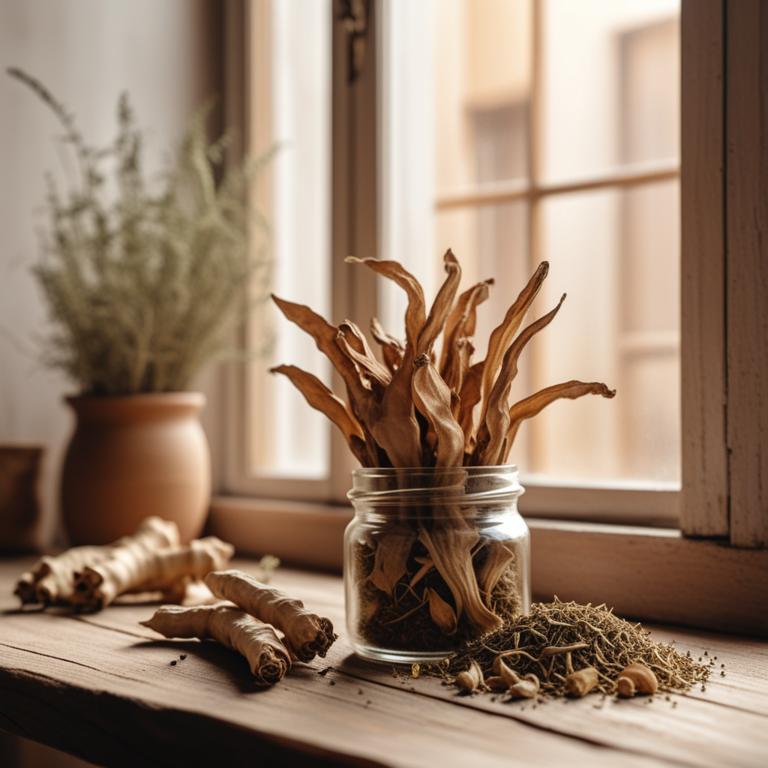
Understanding and Treating Dry Cough with Medicinal Herbs and Herbal Preparations
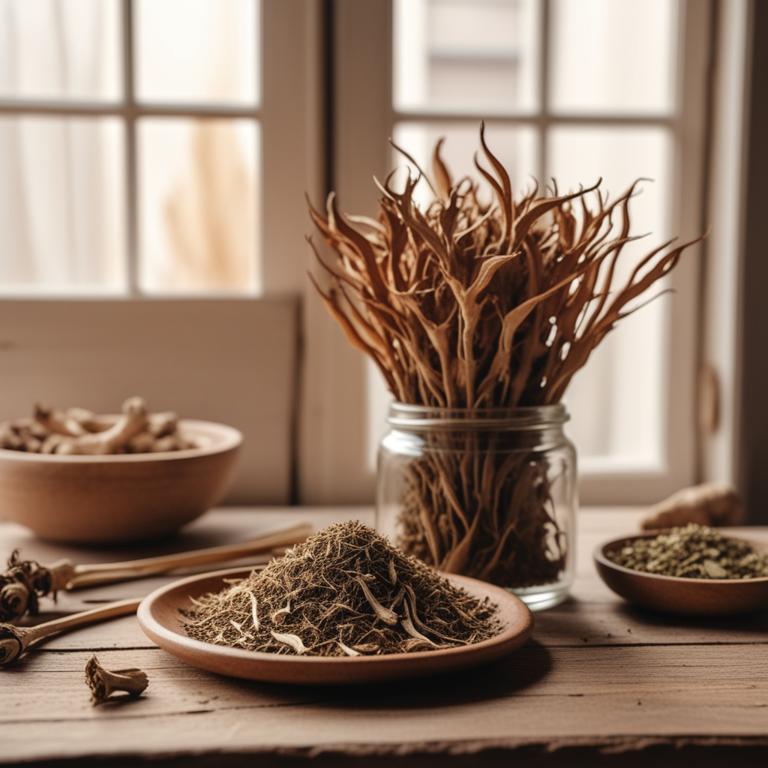
Hoarse Voice: Understanding Causes and Using Medicinal Herbs and Herbal Preparations
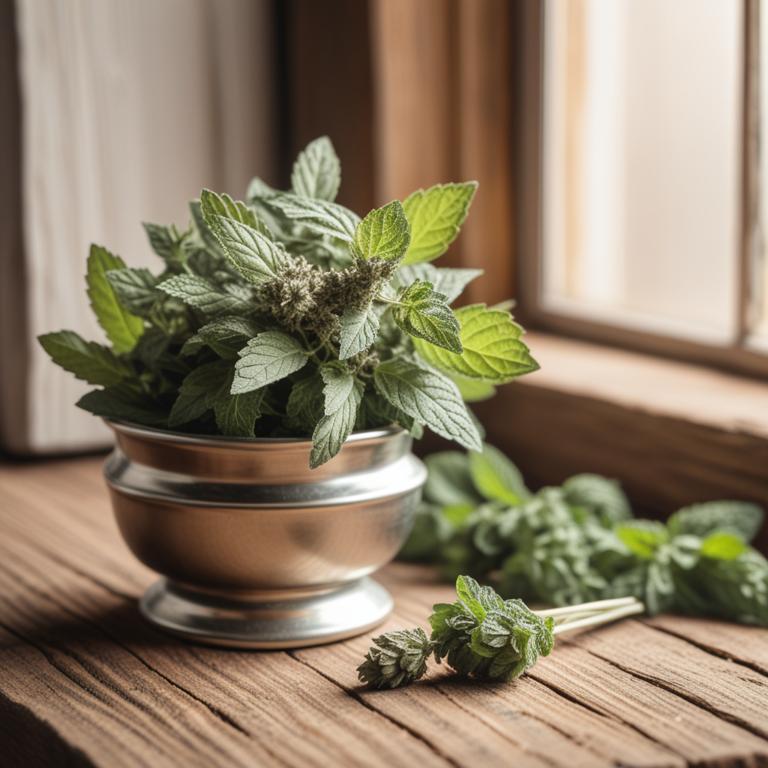
Throat Irritation Relief: Natural Causes and Effective Medicinal Herbs




